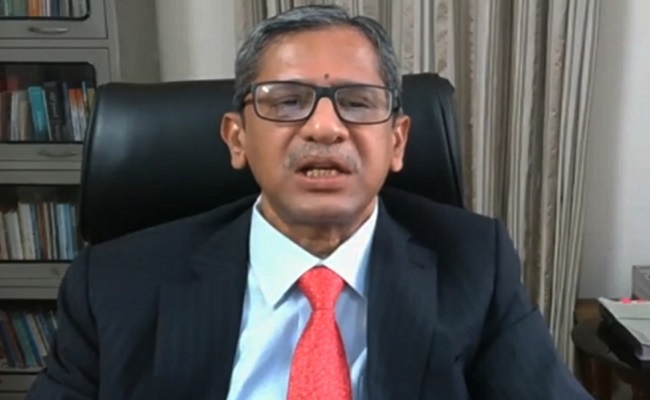
The Telangana high court on Friday ordered the cancellation of land allotment to the extent of 3.5 acres in Hyderabad’s Rayadurgam area to the International Arbitration and Mediation Centre (IAMC), founded by former chief justice of India N V Ramana, during the previous Bharat Rashtra Samithi government.
A division bench comprising Justices K Lakshman and K Sujana, which heard the arguments over two Public Interest Litigations (PILs) filed by advocates K Raghunath Rao and Venkatram Reddy, cancelled the land allotment citing violations of legal procedures and Supreme Court guidelines.
The petitioners had challenged the previous BRS government’s allotment of land in Survey No. 83/1 of Serilingampally Mandal — part of the city’s upscale IT corridor — to the IAMC.
Valued at over Rs 350 crore, the land parcel was granted through a Government Order by then chief minister K Chandrasekhar Rao at nominal rate.
The allotment was accompanied by a Rs 50 crore grant for construction, and the foundation stone for the Centre’s permanent premises was laid on 11 March 2022, by the then-Chief Justice of India, Justice NV Ramana.
At the time, Justice Ramana had lauded the Telangana government’s initiative as a step toward modernising dispute resolution mechanisms in India.
However, the land allotment soon drew criticism, with petitioners alleging that the state had handed over high-value public land to a private body without adhering to due process or established norms.
The PILs contended that the move lacked transparency and violated principles laid down by the Supreme Court regarding the allocation of public resources.
In defence of the allotment, the Advocate General argued that the IAMC was a public-spirited institution designed to serve national interests by fostering efficient dispute resolution.
He stressed that the Centre’s governing body included key public figures such as the Chief Justice of the Telangana High Court and the state’s law minister, ensuring accountability and credibility.
Despite these arguments, the bench ruled in favour of the petitioners, declaring the land allotment illegal.
The court found that the transfer violated procedural rules and ignored the binding directives of the Supreme Court concerning the use and distribution of public property.




1772639111.png)









